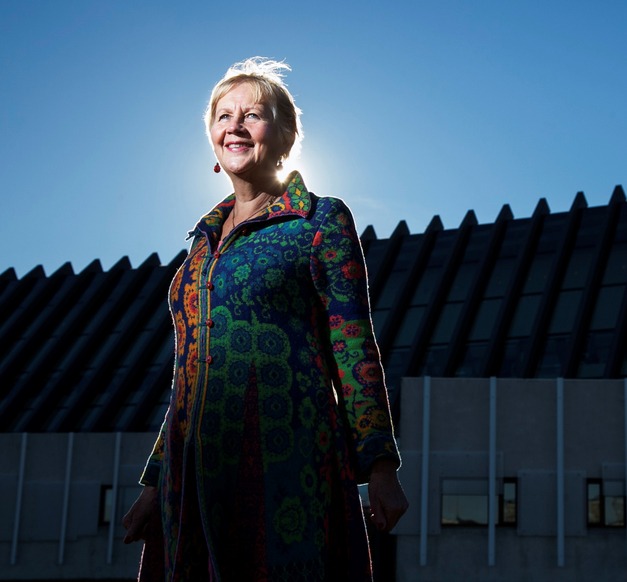Kristín Vala Ragnarsdóttir, Professor at the Faculty of Earth Sciences
„My research comes from the heart. I choose projects that will enable the human race to live in a sustainable manner so that my grand-children can enjoy a good life, where we have learned that we only have one Earth that we must care for,” says Kristín Vala Ragnarsdóttir, Professor of Sustainability studies. She has definitely taken on global issues in her study of the UN-Sustainable Development goals passed in the autumn of 2015. These new goals will replace the organisation’s millennial goals.
The seventeen Sustainable Development goals focus on eradicating poverty and hunger; ensuring education and health for people; encouraging more equality; sustainable energy use; innovation and development; sustainable cities; responsible consumption; environmental protection, and increased international cooperation. In her study Kristín Vala and her colleagues employ discrete event simulation models to demonstrate how the seventeen goals interact, not least how energy features in all the goals.
Kristín Vala Ragnarsdóttir
“This work is key in the endeavours to achieve the UN goals and to find ways to live on Earth in a sustainable manner.”

The study is connected with projects that Kristín Vala has carried out for the government of Bhutan. “In 2012 the Prime Minister and King of Bhutan invited me to a UN conference attended by 800 specialists in sustainability from all over the globe. The subject was how we could learn from Bhutan, which uses other indicators to measure development than other countries, where happiness is measured rather than GDP. After this meeting I was invited to Bhutan to further discuss these issues, and I along with my colleagues handed in a report to the UN concerning them. This work triggered my interest in the sustainability goals,” says Kristín Vala who has worked with a group known as Balaton; an international group of specialists in sustainability for a few years, and also in the Club of Rome that also strives to ensure that humanity does not overuse the Earth’s resources.
She hopes that the work on analysing the links between the sustainability goals will finish early in 2016. “This work is key in the endeavours to achieve the UN goals and to find ways to live on Earth in a sustainable manner,” she concludes.


